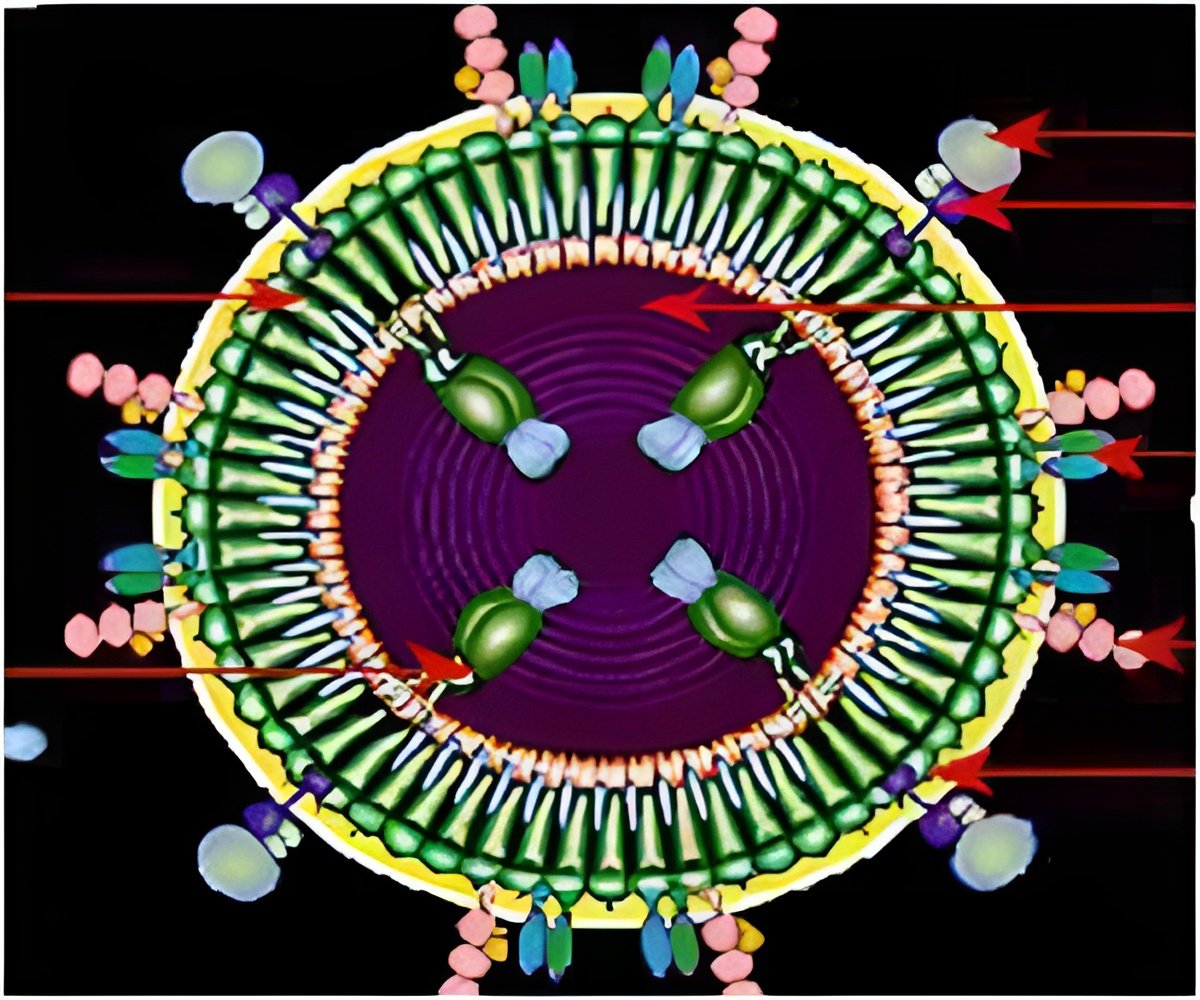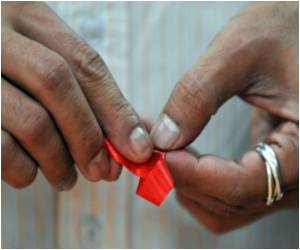A novel way to prevent HIV from damaging the immune system has been identified by scientists at the Imperial College London and Johns Hopkins University.

The research found that HIV is unable to damage the immune system if cholesterol is removed from the virus's membrane.
Usually, when a person becomes infected, the body's innate immune response provides an immediate defence. However, some researchers believe that HIV causes the innate immune system to overreact and that this weakens the immune system's next line of defence, known as the adaptive immune response.
In the new study, the researchers removed cholesterol from the membrane surrounding the virus and found that this stopped HIV from triggering the innate immune response.
This led to a stronger adaptive response, orchestrated by immune cells called T cells. These results support the idea that HIV overstimulates the innate response and that this weakens the immune system.
"It's like an army that has lost its weapons but still has flags, so another army can recognise it and attack it," said Dr Adriano Boasso, first author of the study, from Imperial College London.
Advertisement
Source-ANI















